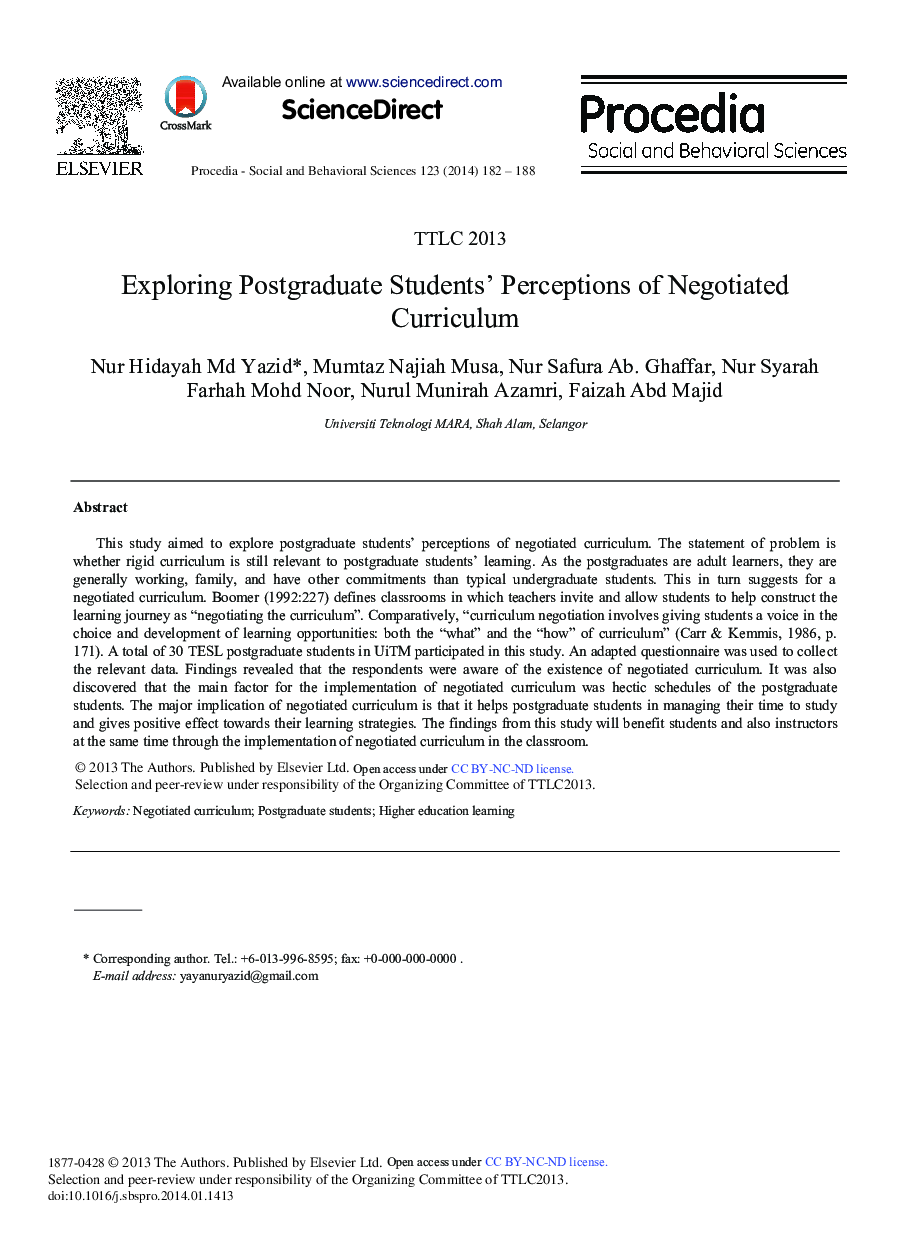| Article ID | Journal | Published Year | Pages | File Type |
|---|---|---|---|---|
| 1114398 | Procedia - Social and Behavioral Sciences | 2014 | 7 Pages |
This study aimed to explore postgraduate students’ perceptions of negotiated curriculum. The statement of problem is whether rigid curriculum is still relevant to postgraduate students’ learning. As the postgraduates are adult learners, they are generally working, family, and have other commitments than typical undergraduate students. This in turn suggests for a negotiated curriculum. Boomer (1992:227) defines classrooms in which teachers invite and allow students to help construct the learning journey as “negotiating the curriculum”. Comparatively, “curriculum negotiation involves giving students a voice in the choice and development of learning opportunities: both the “what” and the “how” of curriculum” (Carr & Kemmis, 1986, p. 171). A total of 30 TESL postgraduate students in UiTM participated in this study. An adapted questionnaire was used to collect the relevant data. Findings revealed that the respondents were aware of the existence of negotiated curriculum. It was also discovered that the main factor for the implementation of negotiated curriculum was hectic schedules of the postgraduate students. The major implication of negotiated curriculum is that it helps postgraduate students in managing their time to study and gives positive effect towards their learning strategies. The findings from this study will benefit students and also instructors at the same time through the implementation of negotiated curriculum in the classroom.
